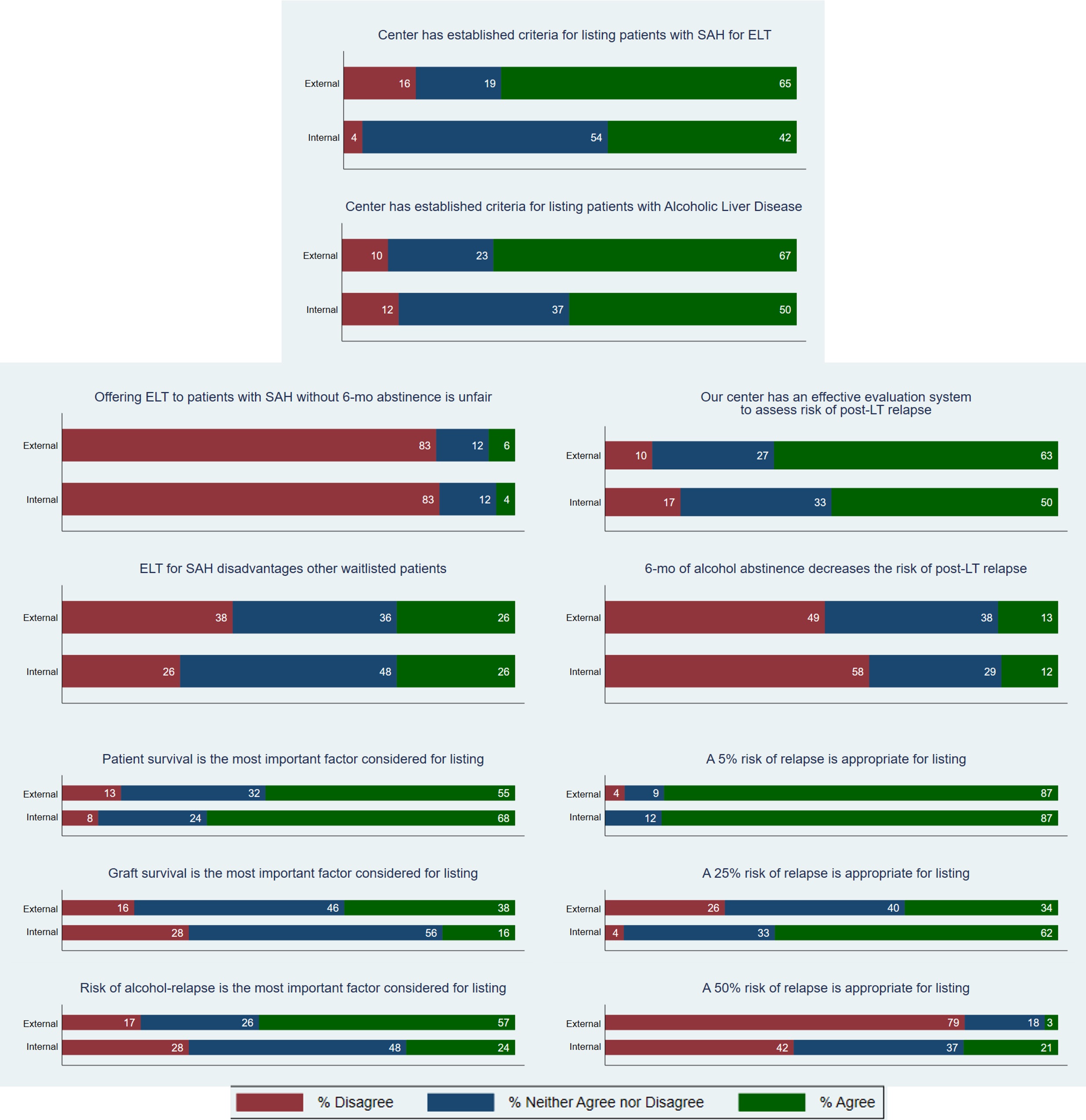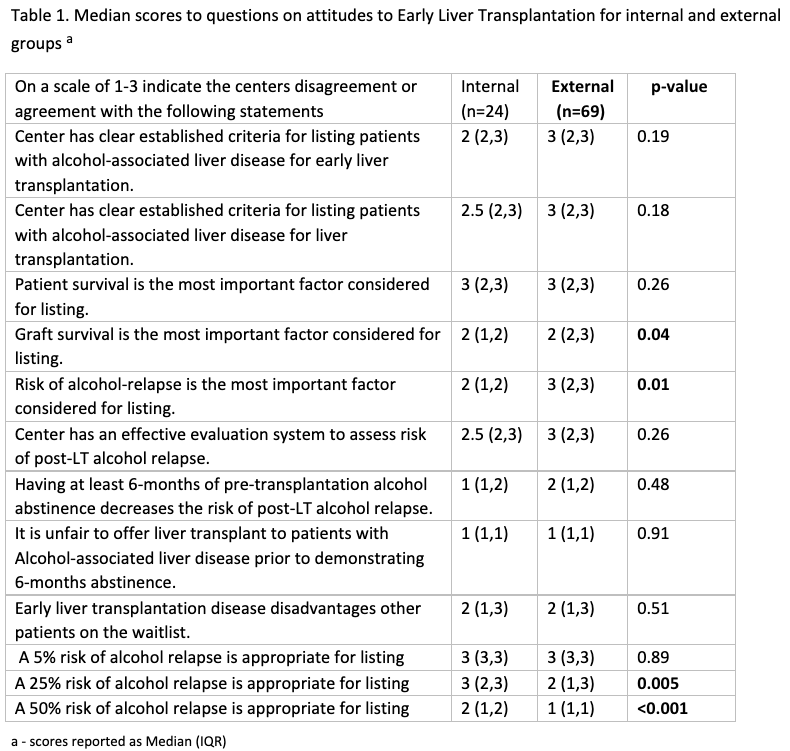National Attitudes Towards Early Liver Transplantation for Alcoholic Liver Disease
1Department Of Surgery, Johns Hopkins University, Baltimore, MD, 2Department Of Surgery, Walter Reed National Military Medical Center, Bethesda, MD
Meeting: 2022 American Transplant Congress
Abstract number: 880
Keywords: Alcohol, Liver cirrhosis, Liver transplantation, Organ Selection/Allocation
Topic: Clinical Science » Liver » 55 - Liver: Recipient Selection
Session Information
Session Time: 5:30pm-7:00pm
 Presentation Time: 5:30pm-7:00pm
Presentation Time: 5:30pm-7:00pm
Location: Hynes Halls C & D
*Purpose: Pre-transplant abstinence requirements, notably the 6-month sobriety guideline, limit access to liver transplant for patients with severe alcoholic hepatitis (SAH). This study examines the opinions and practices of transplant providers in the US regarding early liver transplant (ELT) for SAH.
*Methods: A 20-item survey developed at Johns Hopkins Comprehensive Transplant Center (JHCTC) to assess practices and opinions toward ELT was distributed to 225 medical and surgical directors from 143 liver transplant centers (External group), and providers on the liver transplant team at JHCTC (Internal group). Attitudes towards ELT were assessed using questions answered on a 3-point Likert scale, comparing median scores between groups using a Kruskal-Wallis H test.
*Results: Surveys were completed by 31.6% (n=71) and 41.4% (n=24) of external and internal groups, respectively. In the external group, 97.2% reported evaluating candidates for ELT, with 7.3% reporting a minimum abstinence time requirement. ELT was considered for patients with less than 6 months survival without transplant (95.7%) or who were unable to undergo alcohol misuse therapy (73.9%). Strength of social support (100%) and insight into harmful drinking history (95.7%) were listing criteria commonly used for ELT. Regarding center practices, 65.2% (n=45) agreed listing guidelines for ELT existed, 56.5% (n=39) agreed risk of relapse was important for listing, 13.2% (n=9) agreed that 6 months abstinence reduced risk of relapse, and 87% (n=60) agreed that a 5% risk of relapse was appropriate for ELT (Figure 1). The external group was more likely to agree that risk of relapse was most important for listing (Median [IQR] 3[2,3] vs 2[1,2],p=0.01). The internal group was more likely to agree that a 50% risk of relapse was appropriate for listing (Median [IQR] 2[1,2] vs 1[1,1],p<0.001) (Table 1).
*Conclusions: Our study shows that strength of social support and insight into harmful drinking were important criteria considered for listing. This suggests a change opinion on how to determine transplant candidacy in this high-risk population.
To cite this abstract in AMA style:
Mitchell J, Nijhar K, Herrick-Reynolds K, Sung H, Chen P, Segev DL, King E, Cameron A. National Attitudes Towards Early Liver Transplantation for Alcoholic Liver Disease [abstract]. Am J Transplant. 2022; 22 (suppl 3). https://atcmeetingabstracts.com/abstract/national-attitudes-towards-early-liver-transplantation-for-alcoholic-liver-disease/. Accessed March 3, 2026.« Back to 2022 American Transplant Congress


